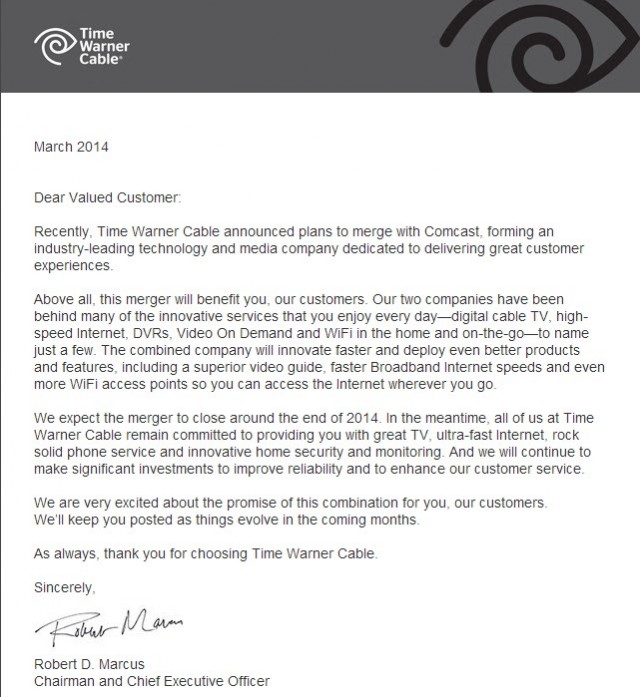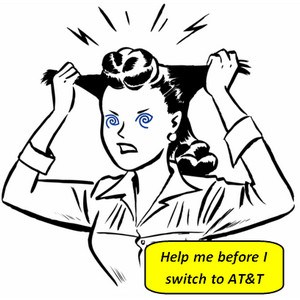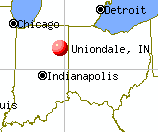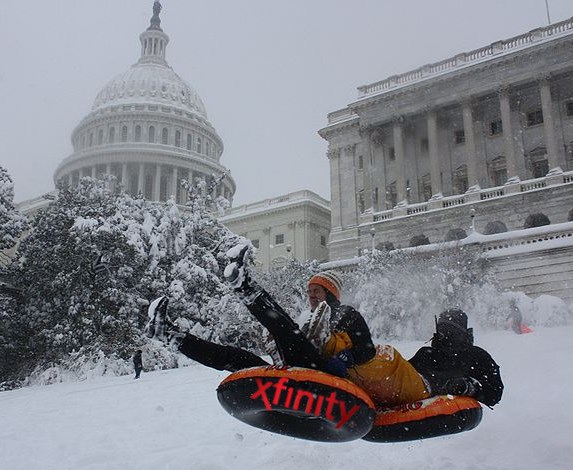
Robert D. Marcus has plenty to be excited about. After less than two full months on the job as CEO, he agreed to sell Time Warner Cable and exit his management role if and when the merger is approved. But he won’t be hurting, because he negotiated a bountiful golden parachute that will award him more than $56 million in exit compensation the day he leaves.

Courtesy: Jacobson
That is but one example of the kind of “innovation” Comzilla will offer Time Warner Cable customers. Others include charging top dollar cable modem rental fees, a broadcast TV surcharge, a completely arbitrary usage cap on broadband service, and an offshore customer service experience even more despised than what Time Warner Cable customers get.
Without actual head-to-head competition, there is no doubt we will hear executives crow to Wall Street that a supersized Comcast has plenty of room to raise broadband prices even higher and to cut company investments in innovation it won’t need to succeed in a controlled duopoly market.
AT&T and Verizon executives — Comcast’s largest competitors — have shrugged their shoulders about the merger deal, believing it will have almost no effect on their bottom lines. Why should it? Comcast has found a growth formula that works — a tap dance away from competition — buy out other cable companies to grow the customer base instead of winning ex-customers back with better service and a lower price.
It appears Marcus’ grand vision for turning Time Warner Cable around with a massive investment in faster speeds and better service is now dead. All that is left on the table is the vague notion of a “significant investment to improve reliability and to enhance our customer service.” In other words – we’ll do a better job to make sure the service you already pay big money to receive actually works and we’ll do a better job answering our phones.
Survey results show the proposed merger is not at all popular with Time Warner customers.
Nothing about Marcus’ spammed e-mail to customers is likely to change that perception.


 Subscribe
Subscribe
 A wireless Internet Service Provider serving rural northeastern Indiana has successfully challenged Frontier Communications’ application for federal funds to introduce DSL service in the region.
A wireless Internet Service Provider serving rural northeastern Indiana has successfully challenged Frontier Communications’ application for federal funds to introduce DSL service in the region. GAB’s OnlyInternet serves around 3,000 customers in Adams, Allen, Blackford, Delaware, Elkhart, Grant, Howard, Huntington, Jay, LaGrange, Madison, Randolph, Tipton, Wabash, Wells and Whitley counties. Founded in 1995, the wireless ISP uses a network of towers to offer a high-speed service comparable to Wi-Fi to residents who generally cannot get broadband from any cable or telephone company.
GAB’s OnlyInternet serves around 3,000 customers in Adams, Allen, Blackford, Delaware, Elkhart, Grant, Howard, Huntington, Jay, LaGrange, Madison, Randolph, Tipton, Wabash, Wells and Whitley counties. Founded in 1995, the wireless ISP uses a network of towers to offer a high-speed service comparable to Wi-Fi to residents who generally cannot get broadband from any cable or telephone company. “We have to look out for the interests of our members,” Rick Harnish, executive director of the Wireless Internet Service Providers Association in Ossian, told the Journal Gazette. The group alerted OnlyInternet of Frontier’s FCC filing for rural dollars. “The Connect America Fund is a subsidy program set up for phone companies, which is why wireless providers are left out. We continue lobbying for equitable treatment, but we’re a small voice compared to the bigger companies.”
“We have to look out for the interests of our members,” Rick Harnish, executive director of the Wireless Internet Service Providers Association in Ossian, told the Journal Gazette. The group alerted OnlyInternet of Frontier’s FCC filing for rural dollars. “The Connect America Fund is a subsidy program set up for phone companies, which is why wireless providers are left out. We continue lobbying for equitable treatment, but we’re a small voice compared to the bigger companies.” Comcast is dumping a blizzard of cash on Capitol Hill in a late winter storm of lobbying to win approval of its $45 billion buyout of Time Warner Cable.
Comcast is dumping a blizzard of cash on Capitol Hill in a late winter storm of lobbying to win approval of its $45 billion buyout of Time Warner Cable.
 AT&T says it plans to adopt fiber to the home service in cities around the United States as part of an expansion of its U-verse GigaPower service.
AT&T says it plans to adopt fiber to the home service in cities around the United States as part of an expansion of its U-verse GigaPower service.